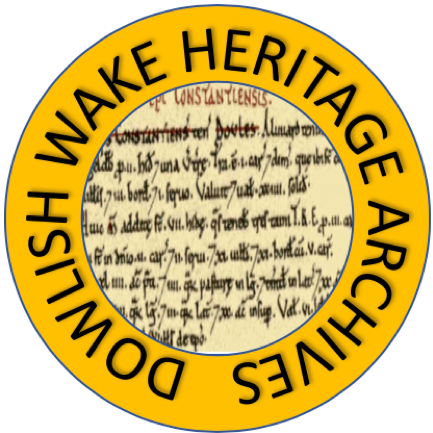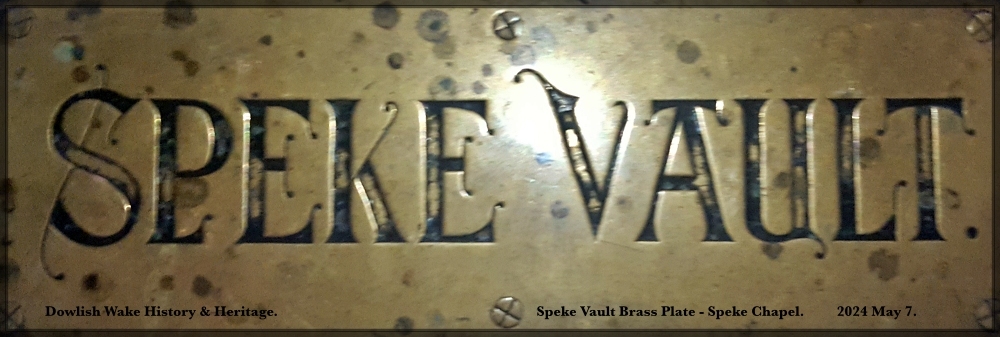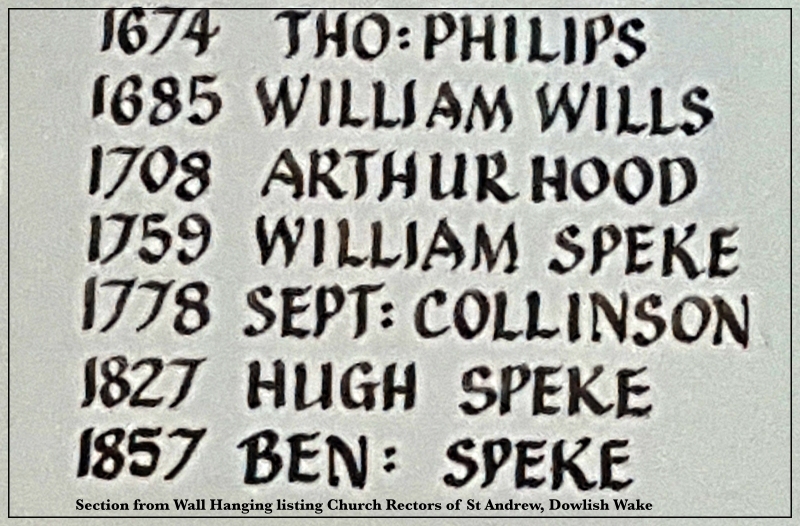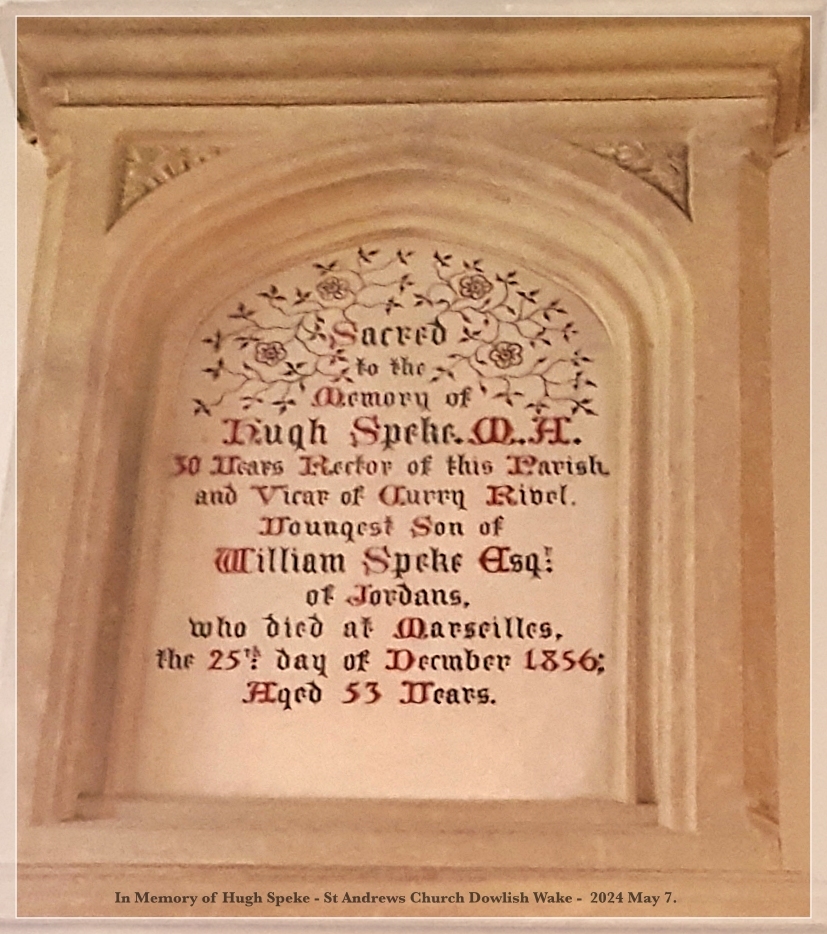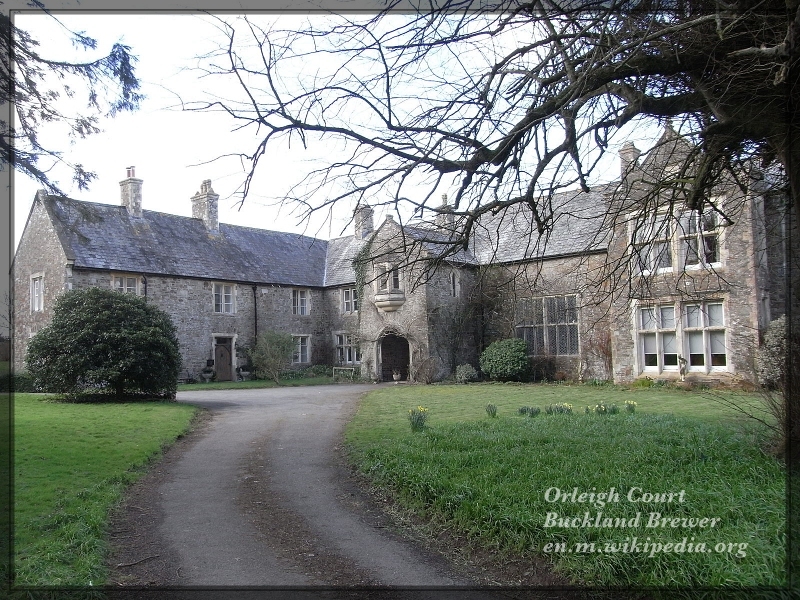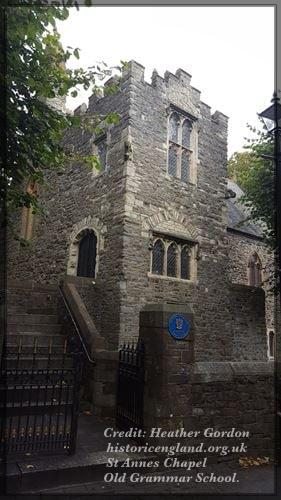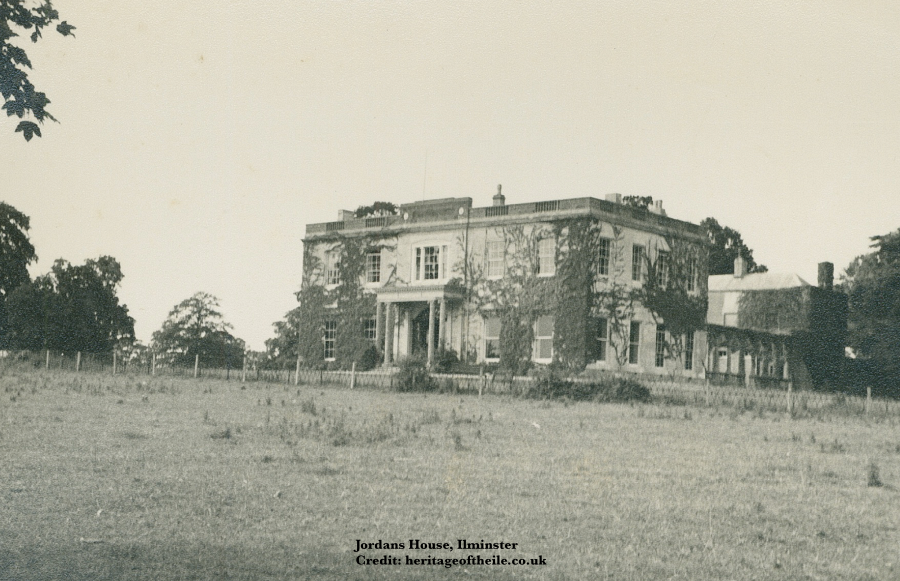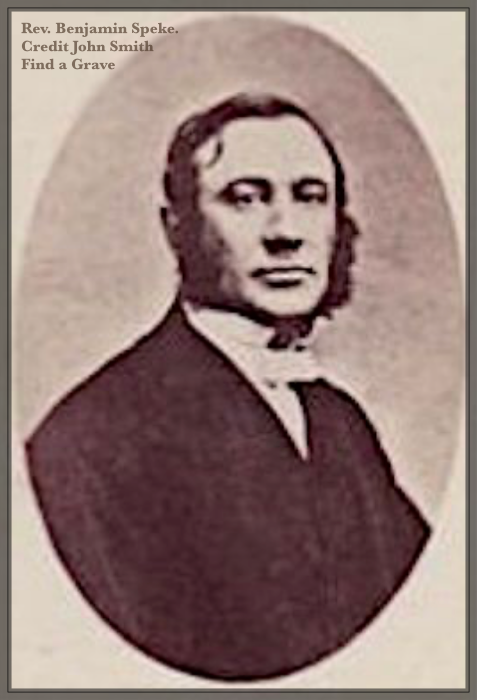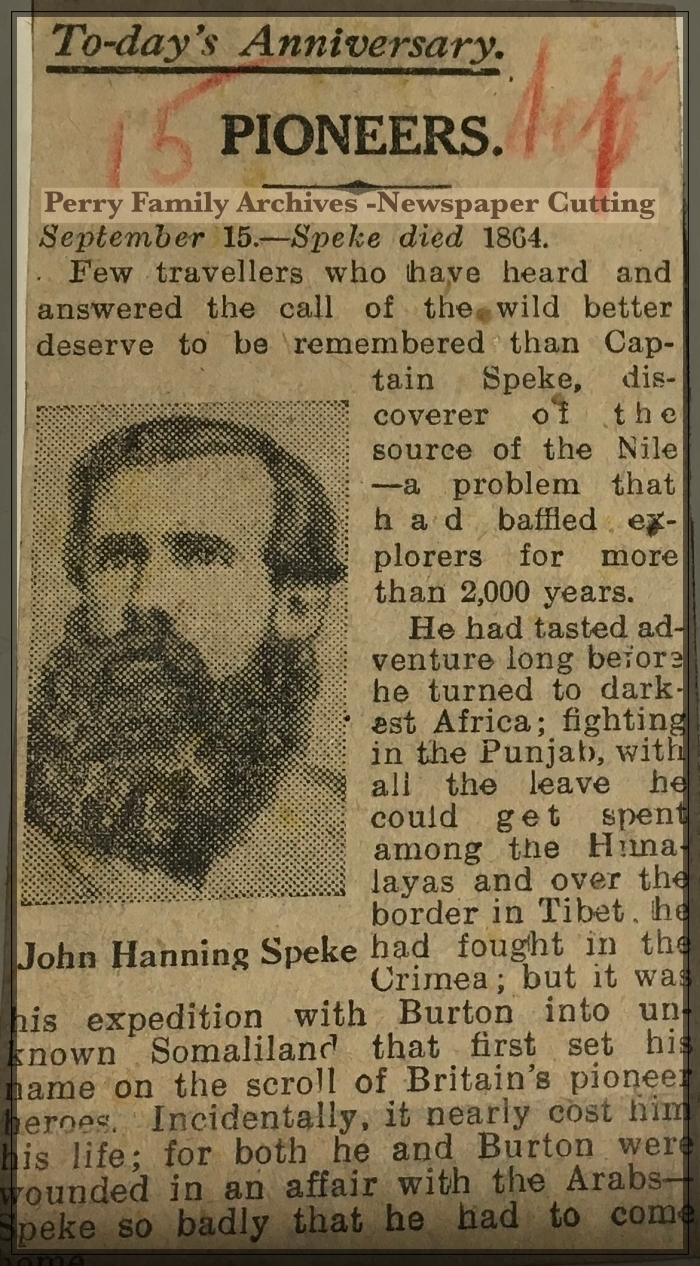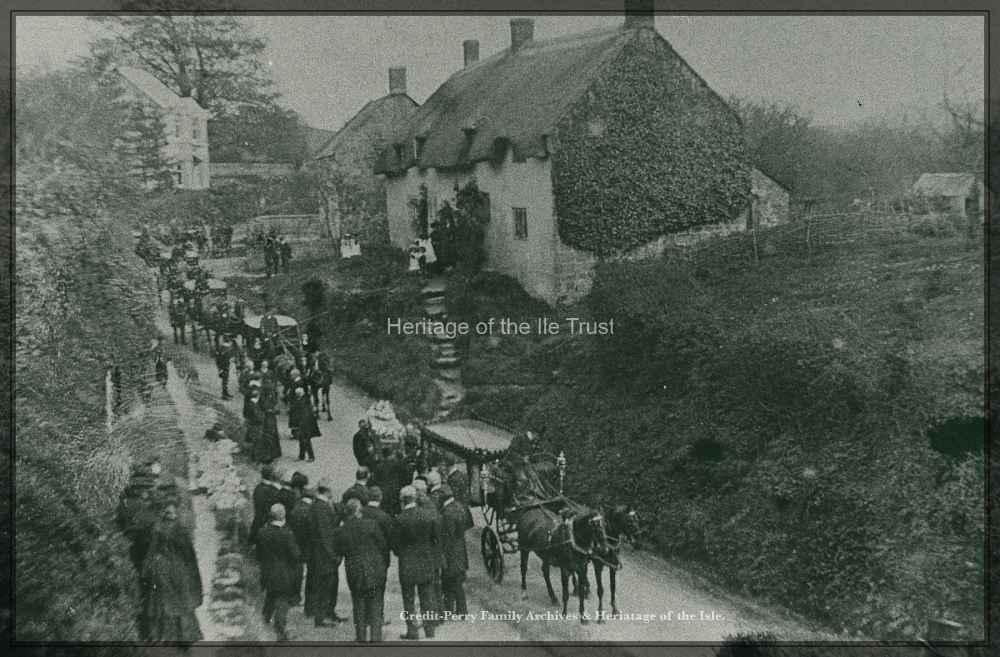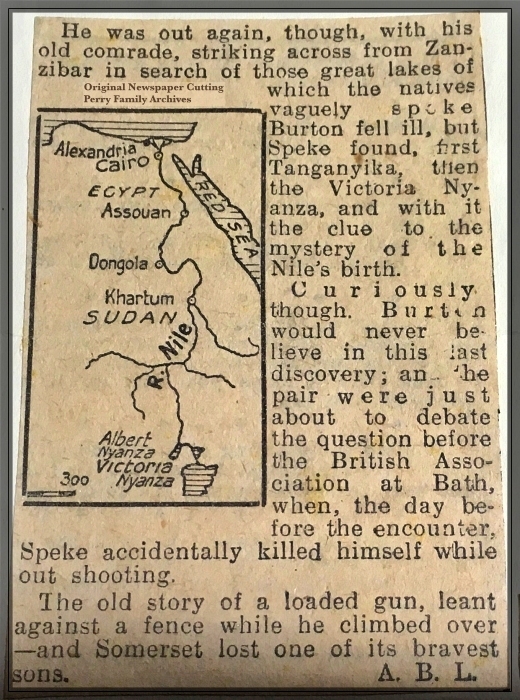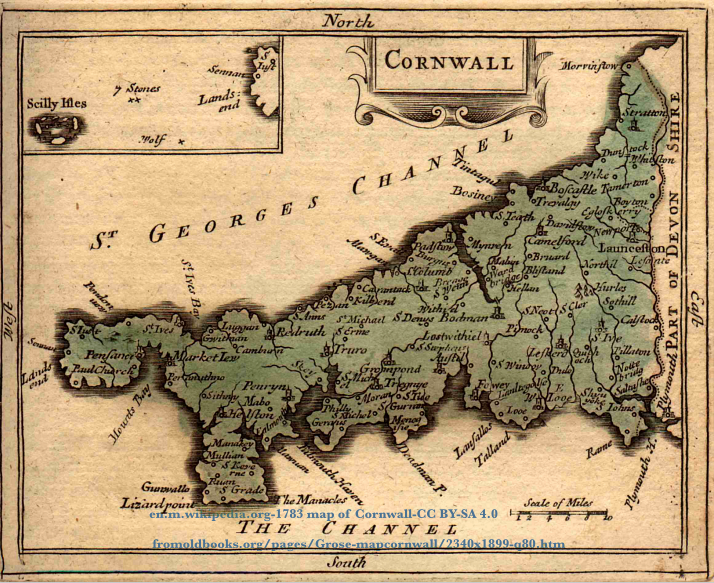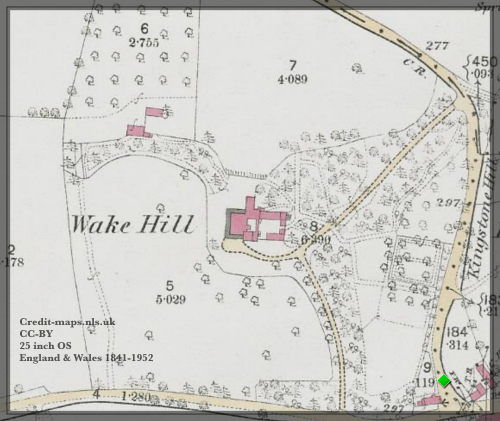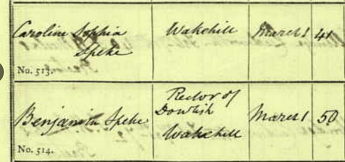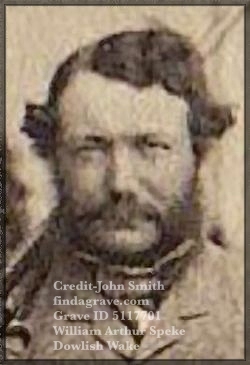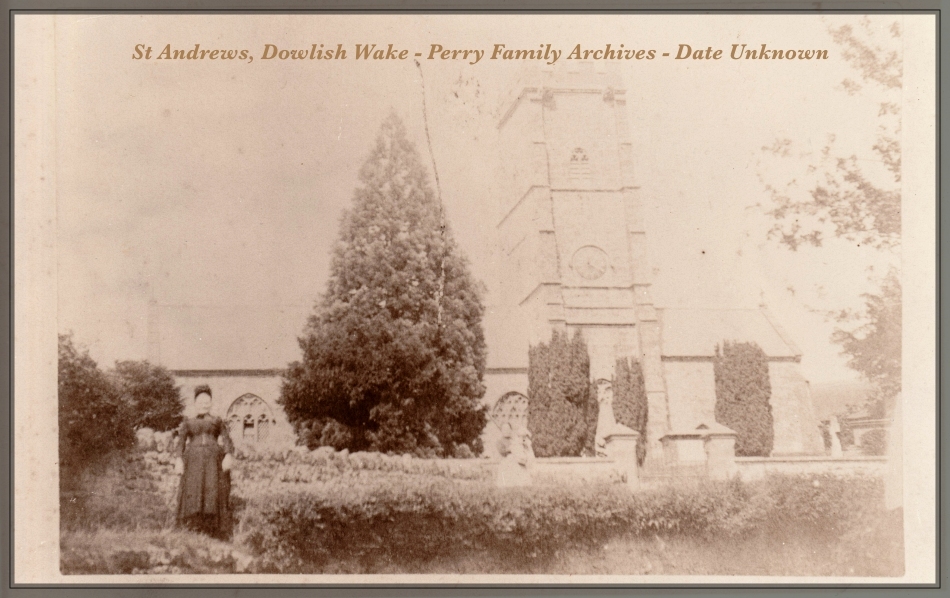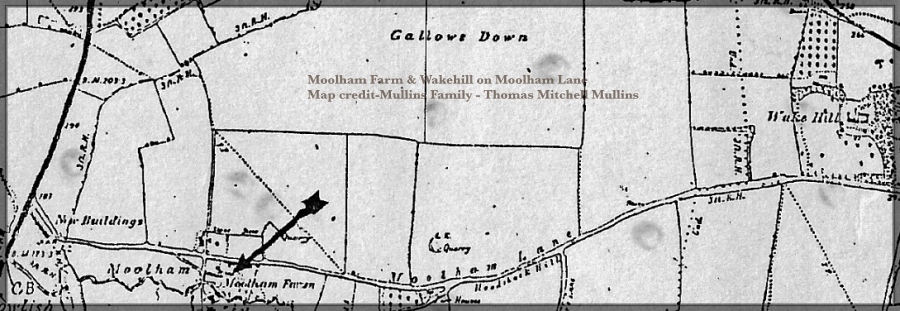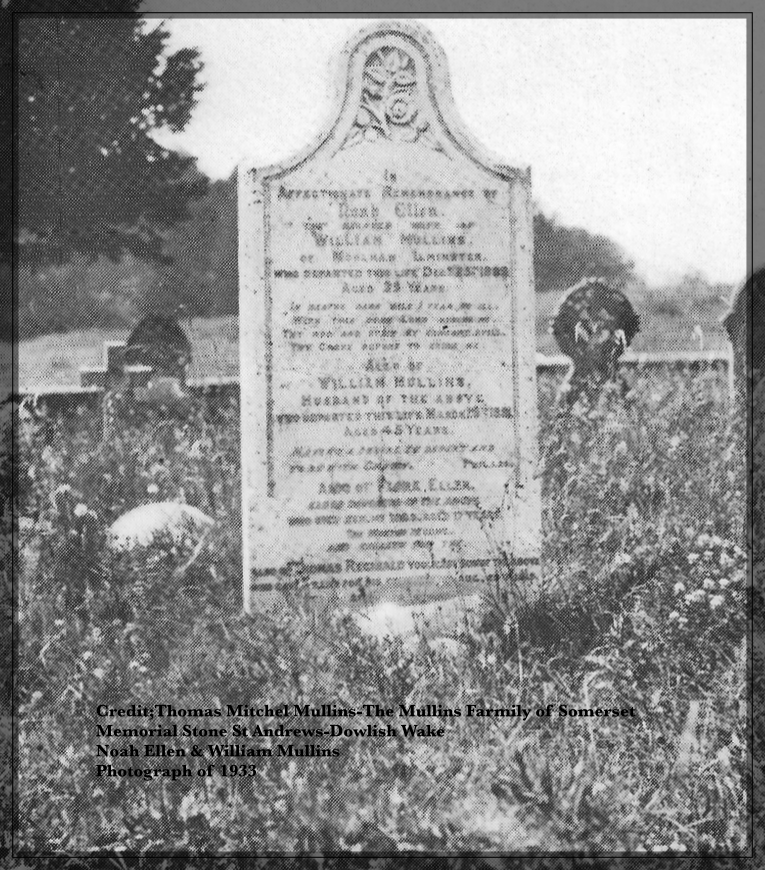Benjamin Hanning Speke [1830-1881]
- The Lesser-Known Of Two Brothers.
- Cornwall Escapade
- A Wedding & Two notable Funerals
Much has been written about the older brother, the famous explorer John Hanning Speke. However, Benjamin, too, has a story to tell. We met him in a previous article, the 1861 rebuild of Dowlish Wake Church. Now, we tell 'his’ story, how Benjamin himself came to experience fame and be the subject of newspaper reporting. His story, like John's, is both shocking and sad.
Hanging in Ilminster Market Square
An interesting family line, Benjamin great, great, great-grandson of George Speke, 1623-1689. George of Whitelackington, a Royalist in the English Civil War. George found himself in 1645, imprisoned in the Tower of London. Having financially supported Prince Rupert of Bridgewater. Released 1649 on payment of some £2000. George’s sons, Charles and Hugh, themselves stirring the political scene. Hugh [1656 – 1724] was imprisoned 1683 for 3 years during the Monmouth Rebellion. During this, his younger brother, Charles [1645 – 1685], became one of 12 hanged from an oak tree in Ilminster marketplace.
Reverend Hugh Speke
Another Hugh Speke, Benjamin’s cousin, figured a good deal in Benjamin’s youth. Benjamin schooled in ecclesial studies from an early age. Hugh was the rector of St Andrews, Dowlish Wake, from 1827 to 1856. Later, Benjamin was to follow in his uncle Hugh's footsteps, becoming rector of St Andrews from 1857 to 1881.
Benjamin's eldest brother, William Arthur Speke, married into an ecclesial family in 1850; his wife, Eliza Anne (1824-1899), was the daughter of the Rev. Charles Wicksted Ethelstone, Uplyme rectory in Devon.
Further back, William Speke had held Dowlish Wake rectory and its living 1759-1771.
Ecclesiastical Education
Benjamin, no doubt benefiting from his uncle Hugh’s and others' experience, studied at Oxford, completing his undergraduate course. Then, from 1849 to 1853, he studied at Christ Church, Oxford. By October 1857, Benjamin had gained his B.A. and M.A.
A formal ceremony in 1857 saw the Bishop of Bath and Wells present him the role of clergyman to the rectory of Dowlish Wake & West Dowlish. So instituted Benjamin Speke, the successor of Rev. Hugh Speke, the latter having passed away the year before in the South of France.
Benjamin’s Childhood
Backtracking now to Benjamin’s childhood,
Born May 1830, Orleigh Court, Buckland Brewer, Bideford in Devon. Benjamin, the fourth son of Captain William Speke, Esq. [1798-1887] & Georgina, Elizabeth Hanning [1805-1879 of Dillington.
Issue;
William Arthur 1825-1908.
John Hanning Speke 1827-1864.
Edward 1829-1857.
Benjamin, 1830-1881.
Georgina Harriet 1835-1913.
Elizabeth 1839.
Sophie 1841-1931.
Matilda 1845-1928.
We found him away at school in 1841, Barnstable Grammar School, Bridport Street, Barnstable. It is believed then housed in the tiny 14th-century St Anne's Chapel in the centre of town. The parish priest supplemented his income by educating a small number of boys, preparing them for Oxford tuition, including Latin Grammar.
Jordan House, Ashill, Ilminster
In 1844, William Speke Esq, Lady Speke and family left the 14th century Orleigh Court, moving to a large mansion, Jordan House, Ilminster. The occasion of leaving warranted a lavish party; a local newspaper, Trewman’s Exeter Flying Post, told of guests, lords, nobles, gentry, plus a special guest, the head butler of Orleigh Court, a Mr James Champlin! Upwards of 80 sat down for the dinner at the Bell Inn in Buckland. ‘Punch and grog flowed spontaneously, with the happy party not ending until the small hours. The poor of the neighbourhood were not forgotten, and speeches regaling William’s great philanthropic benevolence to the poor, including benefactor of Buckland Parochial School.
In 1851, Benjamin was at Queens College, Cambridge.
Benjamin Hanning Speke – Rector of St Andrews
Benjamin Hanning Speke became Rector of Dowlish Wake and West Dowlish in October 1857, following in the footsteps of others of the Speke family, The living £356. [He also held the rectory at Washfield in Devon].
The census of 1861 shows Benjamin living in the family home at Jordans, Ilminster. He did not move into Wakehill House Rectory initially, preferring Jordan's. Some ten years later, Benjamin took up residence at the rectory, located in the north of the parish, on Moolham Lane, which his predecessor Hugh Speke built around 1831.
In his early years as Rector at St Andrew's, he planned and oversaw the demolition and rebuilding of the old church building. From the start, he had been determined to build the church afresh, from the foundations upwards, except the tower. A parish rate was granted, with the rector becoming guarantor for the remainder.
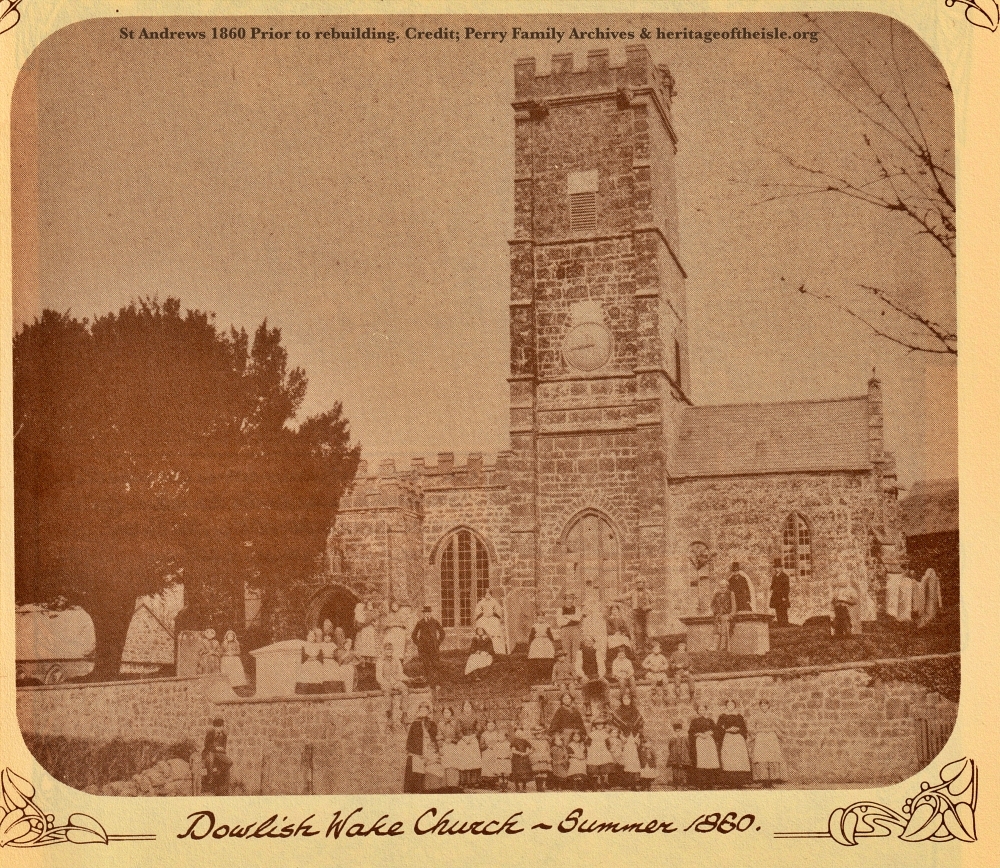
Funeral of John Hanning Speke
It is in 1864 that Benjamin officiates at his own brother’s funeral. The body of Captain John Hanning Speke had been brought to Wakehill House in Moolham Lane on the day of the fatal shooting. The service was read by the Rev. Prebendary Coles. The great African Explorer had accidentally shot himself whilst out partridge shooting.
At the funeral, some 2000 persons were present inside and outside St Andrews church, Dowlish Wake, with John Hanning Speke interred in the family vault.
In the summer of 1866, Benjamin entertained a large party at Wakehill House, members of the Somerset Archaeological and Natural History Society. In their several carriages, members toured the local district. Each year, the three-day event, calling at locations and properties, seeking out worthy archaeological features, village bridges, mansions or abbeys. On the second day of the tour, carriages called at Forde Abbey, Leigh House, Cudworth and both Kingstone and Dowlish Wake churches. At Wakehill House a sumptuous luncheon was laid out for them, the greatest hospitality shown by Mr and Mrs B. Speke.
In August of 1867, Rev. Benjamin Speke hosted a cricket match in Wakehill House grounds; croquet and quoits were provided. A substantial lunch was laid out for the men, with tea for the ladies and children in the drawing room. Mr Speke was loudly applauded and sincerely thanked by all present. In September, he hosted another cricket match, in which Ilminster played against Ilchester. Later that year, at Ashill Church, acting as a visiting preacher on behalf of a Sunday and National Schools Event, around 200 children paraded through the streets carrying banners and flags.
The Vanishing Rector
Benjamin was a busy man, addressing congregations and preaching sermons. Everything to others but what of himself, it seems, he bore anxieties himself. Otherwise caring for his flock his daily life that of thanksgiving, praise, consoling parishioners from the pulpit or graveside. In early January of 1868, things became too much, and suddenly, his life became very public.
In the first week of the new year of 1868, word spread that Reverend Benjamin Speke had disappeared. To the wider world, there were attempts to explain his general character, with a local Sherbourne journalist explaining;
'as a clergyman he was exemplary in the discharge of every duty that could be attached to his calling'. 'He was in the habit of going from Jordans, his father's seat, to Dowlish Wake, where there was a small mansion, quite equal to the wants of the incumbent with a living of £500 a year; but being a bachelor, he did not keep up an establishment. In manners, he was most frank and affable, the most unlikely man to have an enemy. The testimony we heard yesterday from a leading inhabitant of Ilminster was that he was, of all men, the last we could afford to lose.
The village and soon the nation heard of his disappearance, comments fuelled by newspaper speculation. Subtle at first, with headlines' Mysterious Disappearance of a Clergyman' later turning sensational and startling in their suggestion of him being abducted or even murdered, but whatever, it seemed, the earth had surely opened up and swallowed him.
Last seen boarding London train at Ilminster Station.
On Wednesday, 8 January 1868, he was seen leaving Ilminster station for London to officiate at a friend's wedding on the Thursday. He was due to dine with this friend on the Wednesday evening but never appeared at the family townhouse, Eccleston Square. The telegraph was brought into requisition and eventually, the metropolitan detectives were summoned. Enquires led to a London hatter’s shop in Warwick Street where Mr Speke had purchased a hat. He was not seen at all after he left these premises.
His family greatly distressed. The Sherbourne Journal commented;
‘Of three out of four most promising sons, Mr Wm. Speke has been bereft; one fell fighting for his country before the gates of Delhi; and another whose name will live as long as history lasts penetrated to the centre of Africa’.
The brothers;
William Arthur Speke 1825-1908
John Hanning Speke 1827-1864
Edward Speke 1829-1857
Benjamin Speke 1830-1881
Detectives engaged, newspapers carried offers of a £100 reward, speculation gave he had been murdered. Others considered he had purposely disappeared for reasons of his own; it was rumoured that he had thrown away the hat to strengthen a belief in his death. Some sections of the press seemingly devoid of empathy. He was identified to the public, reminding readers this was the brother of the late, great African explorer, Captain John Hanning Speke.
The Lost Man Found
It was some seven weeks before he was discovered, having journeyed to the South Coast of England, where he had hoped to wander, be unknown, wishing just to content himself with preaching the gospel to the labouring classes. He found himself exploring quiet coves and beaches, reading his Bible. He was found alive and well, dejected but in full possession of his senses at Padstow in Cornwall disguised as a bullock drover.
Newspaper headlines announced to the world; Mr Speke Alive and Caught!
‘He answered to the description of Speke; was taxed with being Speke; and confessed’. The column continues: ‘Mr Townsend Murdock stated that ‘the extraordinary conduct has been the result of a hallucination’. Explaining, ‘on the death of Captain Speke, Benjamin became heir to the family estates’. ‘That his family had ceased to care for him’. ‘Severing himself from his family’. ‘He found it impossible to go to the wedding’.
Words had been communicated to the Home Secretary, who asked for the letter written by Speke to his brother-in-law, which had been received by Mr Townsend Murdock's first post-Monday morning. ['Here I am, I am ashamed to write']. At once, Mr Townsend Murdock sought an interview with Sir Richard Mayne.
Communication channels opened via brother-in-law Charles Townsend Murdock’s transmission to Sir Richard Mayne, ‘in order that the public mind might be relieved as early as possible from the painful state of suspense that the case has caused’.
Mistaken Identity
During the seven weeks of his disappearance, the police were under pressure to find him. Sir Richard Mayne was informed, [an English Barrister and joint Commissioner of Police of the metropolis 1796-1868]. However, the police had others they were seeking, particularly Mr A. Ayes from Hull in Yorkshire. He, too, had vanished from sight, slipping away into the populace, having absconded from Hull with a large sum of money.
It was by remarkable chance, a twist of fate, that a photograph of Ayes, circulated by telegraph to nationwide police forces, led to the questioning of Benjamin Speke. Now, this photograph, it seems, was a similar likeness to Benjamin.
Scouring the many newspaper archives of that time, we are told that Benjamin himself was following the printed word at every opportunity. He was reading those newspapers every morning, all too aware of what his absence was causing. But at the time, ‘still determined to continue the concealment of his whereabouts. Unbeknownst to Benjamin, a certain photograph had connected in the mind of a Sergeant Soady of Padstow. He had noted that a stranger [Benjamin] had taken lodgings in the town; he appeared to match the telegraphed description, even though dressed as a cattle drover and carrying a long stick.
The exploits of Benjamin Speke were about to become, ended!
Inspector Opie agreed with Soady and other local police officers, and John was taken into custody. It was said they thought he was Ayres, as Benjamin, the stranger dressed as a drover, had on him a considerable amount of money. He was taken from Padstow to Bodmin. The Chief Constable listened to an explanation of wishing to travel to some country where he was unknown, a simple life, preaching to his fellowmen and working for his living. After questioning and considering his gentlemanly deportment, the constable concluded Benjamin’s conversation rational and mentally sound. With both agreeing, there was no further chance of concealment. The question answered of his luggage, the suspicion with its various disguises and 16 £10 notes plus forty sovereigns. All explained as part of his plan to go to Ilfracombe. He had determined the times of the steamer from there to Swansea. Aiming to walk through Wales to Liverpool, arrange a passage to America, a journey not of an absconding Ayes, but the clergyman he was.
Benjamin in way of publicly announcing his return to that which he had removed himself from, was persuaded by the Chief Constable to write to his sister Sophia and her husband Mr Charles Townsend Murdock. As a measure of his transition at such a difficult time, he begins with;
'Here I am. I am ashamed to write',
'He could not possibly return to London after what had appeared about him in the newspapers'. Later, it seems that Mr Townsend Murdock and Benjamin’s father travelled down to Bodmin. They found him 'depressed in spirit'. But eventually, he was persuaded to take the journey to London, and the three travelled back that same day.
What of his time in Cornwall?
He kept a diary, helping us piece together an account of his time, his days, and, dare we say, his adventures. He wrote of beaches, coves, and the sea. He considered his lonely wanderings on sea shores to have gained him greater insight into the Bible.
It seems deliberation of moving himself from what was his life at that time, only decided, at the ending of the train journey from Ilminster. On arrival in London, with the wedding celebrations imminent, he took action to disappear, travelling from Waterloo to Basingstoke. The next day, walking some 18 miles to Winchester. Then making his way through Southampton, Gosport and Portsmouth. While there, visiting Southsea, East Cowes and other places, moving on 29 January. The next day, he boarded the steamer and arrived in Plymouth. He stayed until 16 February.
He settled into making one town a ‘headquarters’, as he had at Salcombe. Visiting Cotehele, Egg, Buckland, Tamerton, Roborough, Ivybridge and St Germans. The latter where he attended church. On the 16 February, to the small port of Fowey in South Cornwall. The next day, six miles to Lostwithiel, ‘the ancient town on the Fowey River. On the 20th, arriving at the country town of Bodmin some distance away. Arriving at the Queen's Head, a second class inn, ‘here I left my several small bags within a larger bag’.
The following day, he walked some 16 miles to Padstow. This port on the north coast of Cornwall. At Padstow he inquired of a steamer to Liverpool, thinking to put his plan in place, destination America. Hoping to return to Bodmin, attend the church service there, and explore that part of the coastline before travelling to Ilfracombe then Swansea. However, he was arrested that Friday at Padstow and held for three days, Benjamin appearing before Mr H. P. Rawling, county magistrate, before being taken to Bodmin.
Reasons
Benjamin having endured much during those days and weeks of his sudden disappearance, others put forward reasons;
One news journalist suggested his thoughts maybe concerned a lady, this penned in the newspaper, ‘The Queen, The Lady’s Newspaper’, May 1869. The column headed 'Observing People' eludes to 'women at the bottom of all mischief and misfortune' then, ‘or a disappointment in the hope of marrying had given rise to the gentleman's eccentric conduct'! More later plus a wedding.
John Coles, in his publication of 2005, offers a plausible explanation; prior to his disappearance, there had been pressure from his family;
“The family worried none of the four Speke brothers had produced a son. The marriage of the eldest, William was childless; the second brother, the explorer John, had died tragically following a gunshot accident, and the third brother, Edward, had been killed during the Indian Mutiny, so the unmarried [and missing] Benjamin, was the last hope of the family producing an heir.
After further increasing the financial reward to £500, Benjamin was found in Cornwall. He claimed that his behaviour was due to his family's indifference toward him. He had left the train at Basingstoke, walked to Winchester the next day, and then worked his way westward to Cornwall.
The true cause, family opposition to his desired marriage. This to his first cousin, with whom he was deeply in love. Benjamin was despatched to France to recuperate. In due course, returning to Dowlish Wake".
The Newspapers
Benjamin Speke’s life now very public, with journalists vexed, saying he caused a national scandal.
By February, with the lost man found, newspaper paragraphs were being rolled out of the press. Some journalists showing little compassion, as we see here in an editorial piece printed in The West Somerset Free Press, Williton, Saturday, 29 February 1868.
‘Quitting his quiet home on the plea of an engagement in London, proceeding actual to his destination, he from the point to the last, carried out a contrived system of cheater, as the natural results of which he riveted the attention of the whole world upon himself, harrowed the feeling of all to whom he personally known, stirred the sensibilities of society to their utmost depths, gave birth to doubts, fears, anxieties of the gravest kind. Called into intensified action, the entire constabulary force of Great Britain and Ireland, and in a short period of some seven weeks, kept the public mind of this country in a state of utmost anxiety and suspense’.
Friends suggested excessive ‘Biblical Studies’, or that Mr Speke had a morbid dread of marriage, that he conceived the idea of flight and acted on the notion of not being induced to commit so repugnant and act.
Redruth Times and Camborne advertiser 28 February 1868
Also vexed, The Times: They chastised the cleric for ‘causing poignant distress and terrifying the public’.
Nowadays, his actions might be explained as a 'push the world away for the moment and get your breath' action.
The reward £500
It‘s presumed that the Padstow police received the reward offered for his discovery.
The Recovery
His family arranged for him to be sent abroad under the care of a relative, giving him time to recover.
By mid-April, he was back in St Andrews, Dowlish Wake, safely returned to his parishioners, seemingly taking control of his life while carrying out his previous parochial duties and devotion. On Mayday, The Western Gazette told of Benjamin, the previous Sunday, being welcomed by his flock at the Sunday service. His health greatly improved, and he intended to take a second tour of the continent during the coming summer.
A Marriage
Instrumental to Benjamin’s return to his former role, he would be allowed to marry his chosen bride, Caroline Sophie Fuller.
Caroline and Benjamin were first cousins; his and her mothers were sisters, the daughters of William Hanning. An added element is that Benjamin's brother John died on the family’s country house estate at Neston Park, Wiltshire. In fact, Caroline’s brother, George Pargiter Fuller, was the shooting companion on the day of John Hanning Speke’s fatal accident in 1864.
Caroline’s parents, John Bird Fuller and Sophie Harriet Hanning of Dillington. John of Brewery fame, the company Fuller's Brewery. His wife was also well known, Harriet Lee Hanning.
Benjamin himself read the banns in Dowlish Wake parish church. He had endured a wait of five or six years, the marriage he had wished for now granted.
This marriage took place on 19 May 1869. One newspaper reported the occasion in a somewhat light-hearted fashion, saying,
“he had not been forgotten by the British Public, that now he was going to appear in a more pleasing role; as a bridegroom, he, engaged to be married to a fair cousin, a daughter of a Wiltshire Squire”.
The couple to reside permanently at Wake Hill House, his parishioners delighted they would have their friend and adviser constantly near them. Local children gave a wedding present, a bronzed garden seat. His servants from Jordans a marquetery table. Ilminster and Dowlish Wake bells rang merrily on the day, and the happy pair were sent sincere wishes. Three months following their holiday on the continent, Benjamin once more took up his many duties.
By 1871, still at Wakehill, Benjamin was a family man.
The census shows him with his wife and young family, as well as a footman, cook, housemaid, nurse, and lady's maid. All the makings of a happy ending.
1871-1880
Reverend Speke tended and cared for his flock, with rectorial duties and parish souls. He preached, baptised, married, and buried. He also kept records of births and deaths, which he sent yearly to the Bishop at Easter.
Other duties many, keeper of the parish chest and the collecting of tithes [the poor rate - for example in 1871 this was 8d in the pound]. He would have held vestry meetings, recording minutes, keeping church accounts. Settling disputes, liaising with the Justices of Peace, appointing parish officers;
Churchwardens [the maintenance of buildings and fabric of the church,
Overseers of the poor [assisting in finding work or providing outdoor relief for the poor[ & [removing strangers that might become a burden on the parish],
Waywardens [responsible for repair and maintenance of roads]
During the 1870s, Benjamin assisted at the annual Dowlish Wake Friendly Society club days.
At Christmas time in 1879, he provided the poor of the parish with 2 cwt of coal and 1lb of beef per head, adding to the gifts of others: farmer Huddy flour and farmer Duke peas!
Father to eight children
All the above bringing him in to daily contact with his parishioners, the family man, father of several children, his days full in this ancient parish.
By late 1880, they had eight children & heirs:
Walter Hanning Speke
Frederic Speke
Charles Speke
Augustus Grant Speke
William Speke
Herbert Speke
Hugh Speke
Ethel Georgina Speke.
A Victorian Novel?
Looking back some 150 years, one can imagine that folk near and far were very pleased for him and perhaps likened the happenings to a Victorian novel.
Sadly, however, we are not able to offer a happy ending, as we next have a double burial in his Church, St Andrews, Dowlish Wake. This is Benjamin, together with his young wife, Caroline. Benjamin, the rector and the good soul, was the one who had provided Dowlish with its rebuilt church.
Double Funeral Service
Reverend Benjamin Speke of Wakehill, in the parish of Dowlish Wake, died on 24 February 1881, a widower, having lost his wife a day earlier after her short illness; painful lung congestion.
In 1881, after just twelve years of marriage, Caroline died. Worn out, frantic with grief, Benjamin, by his own hand the following morning, drowned within the Wakehill House estate grounds.
Benjamin and Caroline were buried together five days later in St Andrews churchyard at Dowlish Wake. The village children walked in procession behind the coffins, and nearly a thousand people lined the road from Wakehill house to the Church” [John Coles].
He is commemorated by an inscription around the base of the brass lectern in St Andrews. In the past, a memorial had been erected in the churchyard at West Dowlish. to Rev, Benjamin Speke, rector 1857 – 1881.
Newspaper correspondents and the sad death of Reverend Benjamin Speke.
Again speculation, much the flavour of columns in local and national newspapers, The Taunton Courier, with a rebuttal to a leading article in ‘The Standard’ the previous day and seeking to promote a local view, spoke of Benjamin’s disappearance thirteen years hence, where
‘no doubt evidence of aberration of intellect at that time existing, but there then as now, circumstances of a painful nature acting upon a sensitive nervous system An enforced separation from the woman to whom he was fondly devoted was the cause of his eccentric action in February 1868; a final separation in February 1881, was the occasion of the crowning catastrophe’.
The article published Wednesday, 9 March 1881, wrote of 800 or more persons present at the joint funeral of Benjamin and Caroline, which was, 'conducted in a very private manner'. Spoken of was his ‘almost daily communications with the sick of the parish’, his devotion to duty, the unfailing, unbounded attention to the schools and those of his ministrations. ‘The loud wail of grief from his beloved flock is the strongest evidence of the loss sustained’. ‘The late Mr Speke was not a lunatic at large but a good neighbour, devoted husband, a faithful friend, and a model parish priest’. ‘ There is not a man, woman or child in Dowlish but feels they have lost their pastor, counsellor and a friend’.
Benjamin’s Church at Dowlish Wake on fire.
It is possible that there is another factor which caused Benjamin great distress, the details found in a newspaper article seemingly given no attention until now.
A fire in his beloved Church, St Andrews Church, Dowlish Wake, the week ending 29 January 1881. A small paragraph in local newspapers seemingly overlooked by those before me who have wished to communicate and make sense of those events of February 1881.
I can find no correspondents in journals or books recounting this fire. It was published in West Somerset Free Press on page four of the Saturday, 29 Jan edition. Likewise, the fire was reported in the Weston Mercury and the Weston Super Mare Gazette.
‘On Monday, the parish church of Dowlish Wake, near Ilminster, narrowly escaped being destroyed by fire. The heating flues had become over-heated and the sexton on going into the tower to wind up the church clock smelt the fire and found the floor in the body of the church in flames. He immediately gave the alarm, but the fire was not subdued before most of the pews in the body of the church were destroyed, the damage being estimate at about £30. No blame is attached to any person. This church was restored not many years ago. The vicar is the Rev. B. Speke’.
Benjamin's walking into his church to witness such damage, the sight of which likely adding to his anguish and his state of mind. His church, his creation, that handsome place of worship for the parishioners of Dowlish Wake, now seen ruined on that January winter’s day. At home, had been a very sick wife and a new baby just weeks old.
But what of the children.
Following the tragedy on 24 February 1881, the eight children now orphans, were taken to Jordan’s, to be cared for by Benjamin’s eldest brother, their eldest uncle and now guardian.
This brother, Captain William Arthur Speke and his wife, Eliza Anne, became the initial caregivers of the eight orphans, taking them into their home at Jordan's. William and Eliza their marriage childless, now responsible for seven boys and one girl. However, the census lists 8 servants within the household.
William Speke and his wife attended services on the Sabbath in Ilminster with his charges. Of which we are told the townsfolk, spoke of the newly extended family ‘as a long pewful at Ilminster Church, Sunday after Sunday’. Gladdening the hearts of many.
After a few weeks, some of the children were to continue their schooling away from Jordans, leaving just four of them with William and Eliza.
Census records show that by 3 April 1881, only Walter, 10, Herbert, 4, Hugh, 3, and Ethel, 1 were at Jordan's.
The other 4 boys, after their parents had died, now just weeks later lodging/boarding at various establishments to continue their schooling;
Frederick John, 9, at Penicarwick Preparatory School, Littleham, in Exmouth.
Charles 8 and Grant Augustus 7 are nearer, at the Rectory, Hinton St George.
While William 6, lodger/scholar at 5 Sea View, Barnstable.
Their uncle William Arthur Speke [1825-1908], well known in Ilminster and Somerset, was Captain of Yeomanry, a Magistrate, Justice of the Peace and Deputy Lieutenant of Somerset.
What of Benjamin’s Dowlish Wake flock.
The records show Rev. F. H. Mules, transferring from Bridport to Dowlish Wake in April 1881, accepted the position left vacant by Benjamin's death. The vestry records show a continuation of meetings and the appointing of officers, all as before.
Ten months later, another motherless family in Moolham Lane.
These were the Mullins family of Moolham Farm.
Sadly, just down the lane from Wakehill in Moolham Lane, just 10 months later, another family saw their mother die. The children were tragically uprooted. Mother Noah Ellen, 1850-1881, died on Christmas Day.
Sadly, husband & father, William, died 15 months later. Leaving 5 young orphans to be cared for. The family home was auctioned.
Following Noah Ellen's death, her husband William had requested that she be buried where he could see her from his pew in St Andrews Church, Dowlish Wake. A descendant, Mr Mullins, visited the churchyard in 1985 and confirmed that her grave could be seen from a pew at the rear of the church on the right-hand side.
It was said William died of a broken heart; the text on his gravestone reads, "Having a desire to depart and to be with Christ'. Within two months, Moolham Farm was up for auction, with live and dead farm stock, meadow, pasture and orchards under the hammer. The sale monies were released and put towards keeping the children taken in by those caring for the orphans, including William Kemp of Norton Fitzwarren.
Further reading and sources:
In 1841, Benjamin was 11 years old and away at Barnstable Grammar School, Bridport Street, Barnstable. It is believed to be housed in the tiny 14th-century St Anne's Chapel in the centre of town. The parish priest supplemented his income to educate a small number of boys, preparing them for Oxford; Latin Grammar was essential. Barnstablemuseum.org.uk and census records.
Benjamin’s uncle, Hugh Speke [1803-1856], Son of William Speke and Mary Dickinson Speke of Ashill. Rev. Hugh Speke B.A. & M.A. Rector of Dowlish Wake 1927 for 29 years. Hugh’s predecessor was Septimus Collinson, 1778 - 1827.
Christ Church College Oxford University Alumni 1500-1886. Census record 1851 records show Benjamin at Christ Church College, St Aldale. Undergraduate aged 20.
Ecclesiastical and Collegiate Preferments and Appointments. The Weston Super Mare Gazette. 3 October 1857, - Reverend Benjamin Speke, BA. Christ Church, Oxford to Dowlish Wake and West Dowlish, Somerset. Value £356.
Record of his Bachelor of Arts degree conferred. Reading Mercury 19 November 1853. Online subscription website. British Newspaper Archives; findmypast.co.uk
The Rev. Benjamin Hanning Speke. Detail within the red-covered Booklet, Dowlish Wake—A Guide to St Andrews Church and the Village, was compiled by Duncan Chalmers. It is out of Print; a Copy is at Taunton Archives.
Benjamin Speke, Winchester Commoners 1836-1890 page 30 – 1844-45,-Google Books.
Duties of Rector. The parish; administration and records. The National Archives, media.nationalarchives.gov.uk
M.A. clergyman to the rectory In October 1857, the Bishop of Bath and Wells instituted Benjamin Speke, the rectory of Dowlish Wake, with the rectory of West Dowlish, near Ilminster, in the 'room' of the Rev. Hugh Speke, M.A., deceased. Woolmer’s Exeter and Plymouth Gazette October 1857. Online subscription website. British Newspaper Archives; findmypast.co.uk
A clergyman, exemplary. ‘Sherbourne Journal' recounted in the Northern Warder 28 January 1868, Online subscription website. British Newspaper Archives; findmypast.co.uk
Christmas time 1879, he provided the poor of the parish with 2 cwt of coal and 1lb of beef per head, along with farmer Huddy flour and farmer Duke peas! Findmypast The Western Gazette Friday 2 January 1880. Online subscription website. British Newspaper Archives; findmypast.co.uk
He was last seen leaving Ilminster station for London. The Western Daily Press Saturday 18 January, 1868. Online subscription website. British Newspaper Archives; findmypast.co.uk
Orleigh Court party & speeches regaling benevolence to the poor. Trewman’s Exeter Flying Post, 7 March 1844. Online subscription website. British Newspaper Archives; findmypast.co.uk
John Coles—Dowlish Wake, Its Church & Its People. 'From a collection of literature referring to the 19th and 20th centuries'. Perry's Archives. Out of Print.
Sermons, services and Census Sunday; ‘A History of the County of Somerset’ 1978. Dowlish Wake
His Disappearance. Hat in Birdcage Walk & Recovery of health- sent abroad; Online subscription website. British Newspaper Archives; findmypast.co.uk & The Western Daily Press; Wed, 4 March 1868.
Benjamin and Cornwall. Online subscription website. British Newspaper Archives; findmypast.co.uk; The Edinburgh Evening Courant, Wednesday 26 February 1868.
& The Kentish Gazette, Tuesday, 3 March, 1868.
Benjamin appeared before Mr H. P. Rawling, county magistrate, and was then taken to Bodmin. Various texts, including The Illustrated London News, 29 February 1868. Online subscription website. British Newspaper Archives; findmypast.co.uk
By mid-April, he was back at Dowlish Wake, returned to his parishioners, carrying out all his previous parochial duties and devotion. On Mayday, the Western Gazette told of Benjamin the previous Sunday welcomed by his flock at the Sunday service. His health improved, and he intended to take a second continent tour. The Western Gazette 1 May 1868. Online subscription website. British Newspaper Archives; findmypast.co.uk
The Times chastised the cleric for causing Poignant distress and terrifying the public.
Source; victoriancalendarblogspot.com
Sir Richard Mayne, ‘in order that the public mind might be relieved as early as possible from the painful state of suspense that the case has caused’. The Huddersfield Chronicle, 29 February 1868, page 3. Online subscription website. British Newspaper Archives; findmypast.co.uk
One news journalist suggested his thoughts may concern a lady, and this was penned in the newspaper 'The Queen, The Lady's Newspaper', May 1869. Online subscription website. British Newspaper Archives; findmypast.co.uk
Friends suggested excessive Biblical Studies-
Redruth Times and Camborne advertiser 28 February 1868. Online subscription website. British Newspaper Archives; findmypast.co.uk
Marriage to Caroline Sophie Fuller, of John Bird Fuller, of Fullers Brewery. [Fuller, Smith and Turner]
Mother of Caroline Sophie Fuller: Harriet Lee, who had married William Hanning; Taunton Gazette Wed 26 May 1869. Online subscription website. British Newspaper Archives; findmypast.co.uk
Rev. Marriage to a Wiltshire Squire’s Daughter; Bristol Times and Mirror. Online subscription website. British Newspaper Archives; findmypast.co.uk
Benjamin, his marriage; Online subscription website. British Newspaper Archives; findmypast.co.uk; Leeds Evening Express, 23 April 1869. Online subscription website. British Newspaper Archives; findmypast.co.uk
Fire in St Andrews: Somerset Free Press, page four of the Saturday 29 January edition. 'On Monday, the parish church of Dowlish Wake, near Ilminster, narrowly escaped being destroyed by fire'. Online subscription website. British Newspaper Archives; findmypast.co.uk
Sherbourne journalist explaining his character. Sherbourne Journal' recounted in the Northern Warder 28 January 1868, page 3. Online subscription website. British Newspaper Archives; findmypast.co.uk
The hat by the pond The Langport Herald Sat 26 February 1881—The day of the event—John Dunning the butler—The gardener saw a hat by the pond, ran to it, and pulled him out, but lift was extinct. Online subscription website. British Newspaper Archives; findmypast.co.uk
The eight children, now orphans, were taken to Jordan's to be cared for by their eldest uncle and guardian, William Speke and his wife. That newly extended family is remembered ' as a long pewful at Ilminster Church, Sunday after Sunday'.
Blog; opusculum.wordpress.com Title ‘Major the Rev. Hugh Speke
Buckland Parochial School, Benjamin's father, William, was a benefactor of the school. Woolmer's Exeter and Plymouth Gazette 28 August 1841. Online subscription website. British Newspaper Archives; findmypast.co.uk
Rev. Mules transfers to St Andrew's, Online subscription website. British Newspaper Archives; findmypast.co.uk; The Western Gazette, Friday, 22 April, 1881.
Benjamin’s youngest son, Major Hugh Speke of the 10th Lancashire Fusiliers, late vicar of Curry Rivel, was killed in action in Flanders on 11 August.
John Hanning Speke. Geni geni.com & Dictionary of National Biography, Volumes 1-22 for John Hanning Speke: Online Subscription website; Ancestry ancestry.co.uk
Moolham Farm – Death of Noah and William Mullins- Document written 1988 by Thomas Michell Mullings.
Various Archived British Newspaper’s consulted within the online subscription website; findmypast.co.uk and their extensive ‘British Newspaper Archives’.
The Exeter & Plymouth Gazette 8 May 1868
The Kentish Gazette, Tuesday, 3 March, 1868
The Edinburgh Evening Courant, Wednesday 26 February 1868.
Devices and Wiltshire Gazette, 27 February 1868.
The Weston Super Mare Gazette Sat 29 January 1881
